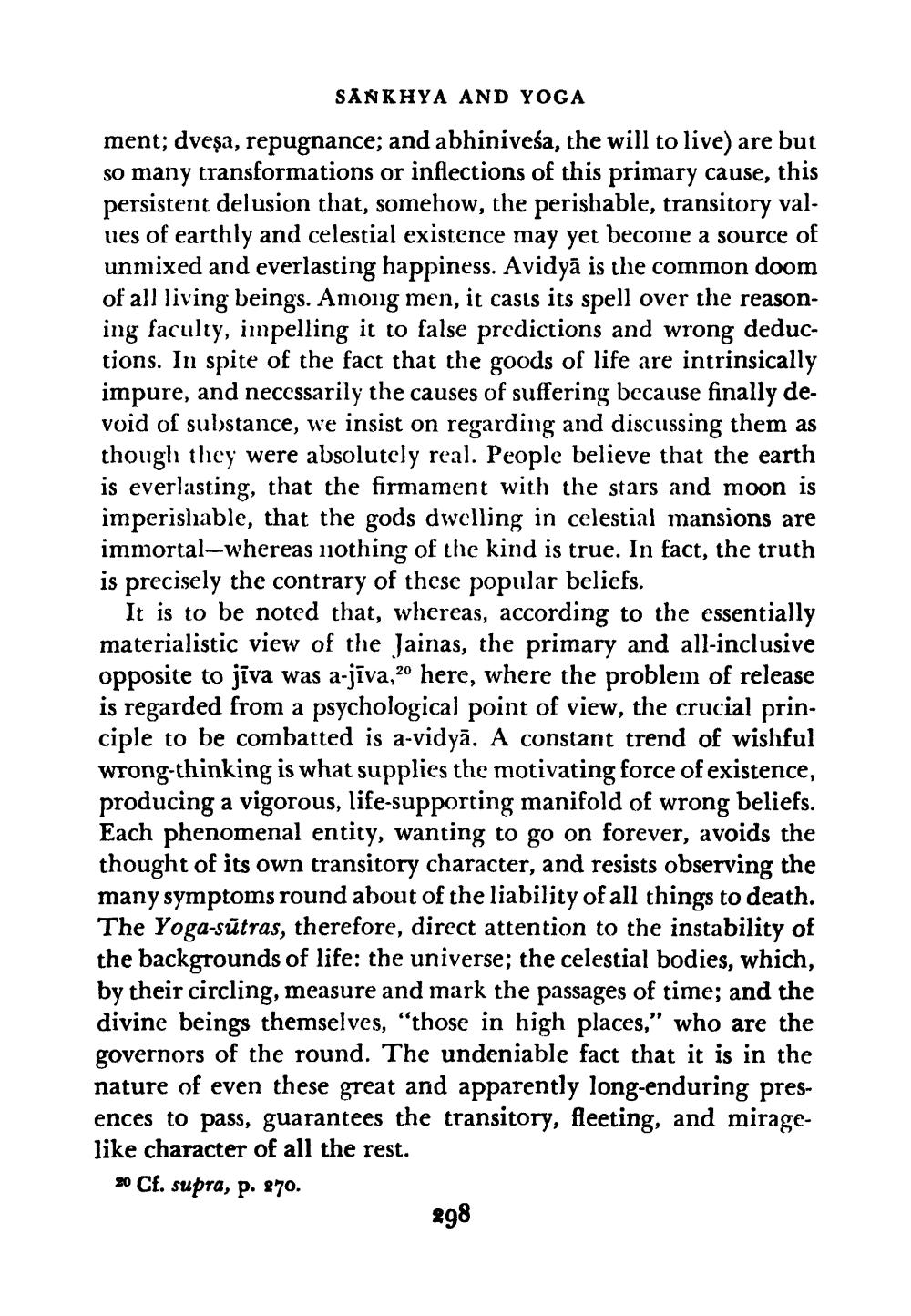________________
SANKHYA AND YOGA ment; dveșa, repugnance; and abhiniveśa, the will to live) are but so many transformations or inflections of this primary cause, this persistent delusion that, somehow, the perishable, transitory values of earthly and celestial existence may yet become a source of unmixed and everlasting happiness. Avidyā is the common doom of all living beings. Among men, it casts its spell over the reasoning faculty, impelling it to false predictions and wrong deductions. In spite of the fact that the goods of life are intrinsically impure, and necessarily the causes of suffering because finally devoid of substance, we insist on regarding and discussing them as though they were absolutely real. People believe that the earth is everlasting, that the firmament with the stars and moon is imperishable, that the gods dwelling in celestial mansions are immortal-whereas nothing of the kind is true. In fact, the truth is precisely the contrary of these popular beliefs.
It is to be noted that, whereas, according to the essentially materialistic view of the Jainas, the primary and all-inclusive opposite to jīva was a-jīva,20 here, where the problem of release is regarded from a psychological point of view, the crucial principle to be combatted is a-vidyā. A constant trend of wishful wrong-thinking is what supplies the motivating force of existence, producing a vigorous, life-supporting manifold of wrong beliefs. Each phenomenal entity, wanting to go on forever, avoids the thought of its own transitory character, and resists observing the many symptoms round about of the liability of all things to death. The Yoga-sútras, therefore, direct attention to the instability of the backgrounds of life: the universe; the celestial bodies, which, by their circling, measure and mark the passages of time; and the divine beings themselves, “those in high places,” who are the governors of the round. The undeniable fact that it is in the nature of even these great and apparently long-enduring presences to pass, guarantees the transitory, fleeting, and miragelike character of all the rest. 20 Cf. supra, p. 270.
298




